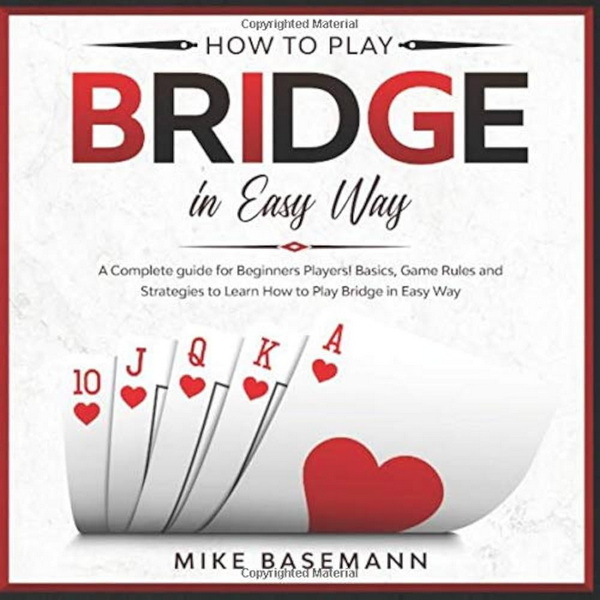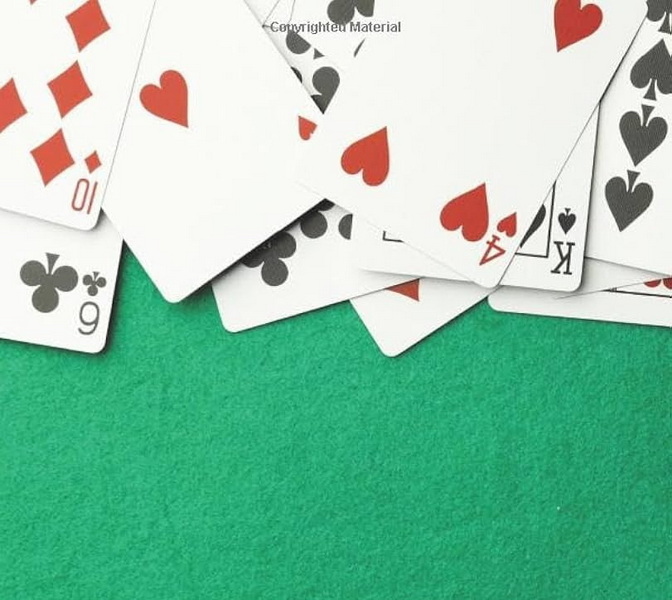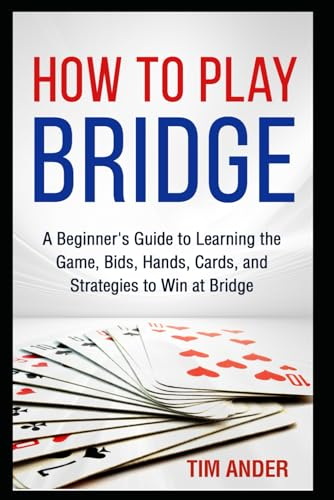Content Menu
● Introduction
● The Basics of Contract Bridge
>> Players and Partnerships
>> The Deck and Deal
● The Two Phases of Contract Bridge
>> The Auction Phase
>>> Objective of Bidding
>>> Bidding Process
>>> Understanding Bids
>> The Play Phase
>>> Setup for Play
>>> Playing Tricks
>>> Objective of Play
● Scoring in Contract Bridge
>> Contract Points
>> Bonuses
>> Penalties
● Advanced Strategies in Contract Bridge
>> Bidding Strategies
>>> Opening Bids
>>> Responding to Partner's Bid
>> Play Strategies
>>> As Declarer
>>> As Defender
● Etiquette and Conventions in Contract Bridge
>> Table Etiquette
>> Common Conventions
● Improving Your Contract Bridge Skills
>> Practice and Study
>> Online Resources
● Conclusion
● Common Questions About Contract Bridge
>> 1. What is the difference between Bridge and Contract Bridge?
>> 2. How long does a typical game of Contract Bridge take?
>> 3. Is it possible to play Contract Bridge with fewer than four players?
>> 4. How important is memorization in Contract Bridge?
>> 5. Can Contract Bridge be played online?
● Citations:
Introduction
Contract Bridge is a sophisticated and engaging card game that has captivated players around the world for decades. This strategic game combines elements of skill, memory, and communication, making it a favorite among those who enjoy intellectual challenges. In this comprehensive guide, we'll explore the intricacies of Contract Bridge, from its basic setup to advanced strategies, providing you with the knowledge you need to start playing and improving your game.

The Basics of Contract Bridge
Players and Partnerships
Contract Bridge is played by four players, divided into two partnerships. Partners sit across from each other at a square table, typically designated by compass directions: North-South and East-West[1]. The partnership aspect is crucial, as players must work together to bid and play effectively.
The Deck and Deal
A standard 52-card deck is used, with cards ranked from highest to lowest: Ace, King, Queen, Jack, 10, 9, 8, 7, 6, 5, 4, 3, 2. The dealer distributes all cards face-down, one at a time in a clockwise direction, until each player has 13 cards[1].
The Two Phases of Contract Bridge
Contract Bridge is played in two distinct phases: the auction (or bidding) and the play of the hand. Understanding both phases is essential for mastering the game.
The Auction Phase
Objective of Bidding
The auction determines the contract for the hand. Players bid to specify the number of tricks they believe they can win and the suit that will be trump (or no trump)[2].
Bidding Process
1. The dealer makes the first call, either a pass or a bid.
2. Bidding proceeds clockwise.
3. Each bid must be higher than the previous bid.
4. The auction ends when three consecutive players pass after a bid[2].
Understanding Bids
- A bid consists of a number (1-7) and a denomination (Clubs ♣, Diamonds ♦, Hearts ♥, Spades ♠, or No Trump NT).
- The number represents the number of tricks above six that the partnership contracts to win.
- For example, a bid of "3♥" means the partnership contracts to win nine tricks (6 + 3) with Hearts as trump[3].
The Play Phase
Setup for Play
After the auction, the player who made the final bid becomes the declarer. The player to the left of the declarer leads the first card, and the declarer's partner (known as the dummy) lays their cards face-up on the table[1].
Playing Tricks
- A trick consists of four cards, one from each player.
- Players must follow suit if possible.
- The highest card of the suit led wins the trick, unless a trump is played.
- The winner of each trick leads to the next[1].
Objective of Play
The declaring side aims to win at least the number of tricks bid during the auction, while the defending side tries to prevent this[2].

Scoring in Contract Bridge
Scoring in Contract Bridge can be complex, but understanding the basics is crucial for strategic play.
Contract Points
- Points are awarded for each odd trick (tricks above six) based on the suit of the contract.
- Minor suits (Clubs and Diamonds): 20 points per odd trick.
- Major suits (Hearts and Spades): 30 points per odd trick.
- No Trump: 40 points for the first odd trick, 30 for each subsequent[6].
Bonuses
- Game Bonus: 300 points for bidding and making game (3NT, 4♥, 4♠, 5♣, or 5♦).
- Slam Bonuses: 500 points for small slam (12 tricks), 1000 points for grand slam (all 13 tricks)[6].
Penalties
If the declarer fails to make the contract, the defending side scores points for each undertrick[6].
Advanced Strategies in Contract Bridge
Bidding Strategies
Opening Bids
- With 12-21 high card points, open with one of your longest suit.
- With 22+ points, open with a strong artificial bid (e.g., 2♣)[7].
Responding to Partner's Bid
- Support partner's suit with 3+ cards in that suit.
- Bid a new suit with 6+ points and a 4+ card suit.
- Raise partner's suit with appropriate strength[7].
Play Strategies
As Declarer
- Plan your play before playing to the first trick.
- Count your sure winners and potential losers.
- Consider finessing, ruffing, and establishing long suits[1].
As Defender
- Lead from sequences (e.g., K-Q-J).
- Signal to partner with high-low plays to show interest in a suit.
- Keep track of cards played and infer declarer's holding[1].
Etiquette and Conventions in Contract Bridge
Table Etiquette
- Avoid discussing hands until the end of the session.
- Make bids and plays in a consistent tempo.
- Be courteous to all players, including your partner[9].
Common Conventions
- Stayman: A way to find 4-4 major suit fits after a 1NT opening.
- Blackwood: A method to ask for Aces when considering slam.
- Jacoby Transfers: A way to transfer the contract to the strong hand in NT contracts[9].
Improving Your Contract Bridge Skills
Practice and Study
- Play regularly with a consistent partner.
- Read bridge books and articles.
- Analyze hands after play to identify areas for improvement[5].
Online Resources
Utilize online platforms like Bridge Champ to practice and play against others from around the world[5].
Conclusion
Contract Bridge is a game of infinite depth and complexity, offering a lifetime of learning and enjoyment. From the strategic bidding process to the intricate play of the hand, every aspect of the game presents opportunities for skill development and intellectual challenge. As you begin your journey into the world of Contract Bridge, remember that practice, patience, and partnership are key to success. Whether you're playing casually with friends or aspiring to compete at higher levels, the rewards of mastering this classic card game are boundless.

Common Questions About Contract Bridge
1. What is the difference between Bridge and Contract Bridge?
Contract Bridge is a specific form of Bridge that includes the concept of bidding for a contract. In Contract Bridge, players bid to determine the number of tricks they must win and the trump suit (if any). This bidding process adds an additional layer of strategy and complexity compared to earlier forms of Bridge.
2. How long does a typical game of Contract Bridge take?
The duration of a Contract Bridge game can vary widely depending on the format and number of hands played. A single hand (including bidding and play) typically takes about 7-10 minutes. A full rubber (two games won by the same team) might take 20-30 minutes. Tournament sessions can last several hours, with multiple hands played.
3. Is it possible to play Contract Bridge with fewer than four players?
While Contract Bridge is designed for four players, there are variations that allow for play with three players. In these variations, one position (usually the dummy) is left vacant, and its cards are played face-up on the table. However, the standard game requires four players for the full strategic experience.
4. How important is memorization in Contract Bridge?
Memorization plays a significant role in Contract Bridge, particularly at higher levels of play. Players need to remember the bidding sequence, the cards played in each trick, and various conventions agreed upon with their partner. However, beginners can start with basic memory skills and develop more advanced memorization techniques as they improve.
5. Can Contract Bridge be played online?
Yes, Contract Bridge can be played online through various platforms and apps. Online play has become increasingly popular, allowing players to enjoy the game with partners and opponents from around the world. Many online platforms also offer tutorials, practice sessions, and tournaments for players of all skill levels.
Citations:
[1] https://www.bridgebum.com/how_to_play_contract_bridge.php
[2] https://www.acbl.org/learn/
[3] https://www.britannica.com/topic/bridge-card-game/How-to-play-contract-bridge
[4] https://bridgewinners.com/forums/read/intermediate-forum/bridge-rule-clarification-questions/
[5] https://bridgechamp.com/blog/bridge-game-rules/
[6] https://bridgechamp.com/blog/how-to-play-contract-bridge/
[7] https://www.youtube.com/watch?v=2IomnCvxWzM
[8] https://www.hasbro.com/common/instruct/Bridge(rulesforContactBridge).PDF
[9] https://www.funbridge.com/how-to-play-bridge
[10] https://www.officialgamerules.org/card-games/contract-bridge
































